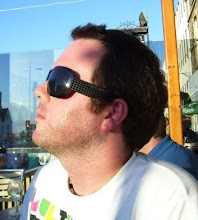Menzi Simelane took over as the head of the National Prosecuting Authority at the end of 2009. We ummed and aahed and shook our heads but no one really gave a fuck.
Why was it important for us to get pissy about Simelane? Because it was the most blatant sign that the government was screwing with the judiciary - basically the people who decide whether to prosecute a crook or not, and then prosecute him if they think they have a strong enough case. Remember the folks who decided that Zuma couldn't be investigated because Mbeki has fiddled with his case? That was them. The people who clobbered Schabir Shaik? That was them.
It is shocking that the politicians are allowed to fiddle in the justice system. And, rightly so, there was criticism from all sectors - including overseas - until we all got bored and realised we didn't feel like couldn't really do anything about it, such is the way of South Africans. We all knew it was the wrong decision. Blatantly.
Similarly, though, Turkey voted in the last week or so in a referendum (with 58% agreeing with the motion) to allow the government to have more control in the country's judiciary. From the Guardian: The outcome presages a transformation of the judiciary, long seen as a staunch secular bastion. It would give the government more control over appointments to Turkey's highest court, the constitutional court, and the powerful Supreme Board of Judges and Prosecutors, which currently appoints most senior judiciary officials. (Click here to read the full story)
And the worst bit? The referendum results give Turkey a far better chance of joining the EU. Said Stefan Fule, the commissioner for enlargement (of the EU I assume): "These reforms are a step in the right direction as they address a number of longstanding priorities in Turkey's efforts towards fully complying with the accession criteria". Bloomberg (the news agency, not the mayor) says that the judiciary will be expanded from 11 members to 17 - with 14 selected by the President and 3 by Parliament.
To be fair, I will mention that the referendum does reduce the military power of the Turkish army which has staged four coups in the last half century. But it must also be made clear that it could impact Turkey's secular society as the ruling party, the Justice and Development Party has faced criticism of pushing an Islamic agenda in one of the Middle East's few secular states.
However, the EU is pushing its own agenda here - backing constitutional reform to join the EU which could impact on other values the EU holds dear, particularly those which mean a lot to members of Turkey's public such as its secular society and independent justice system.
Only politics could twist government interference in the judiciary into a good thing.
We should be shocked.
We might be.
But it won't last long.






2 comments:
Morning Simon,
I am not in any way disturbed by the outcome of the Turkish referendum. The changes to the way judicial appointments are made are not irregular or dissimilar to the rest of the world.
High-ranking judicial officials are almost always appointed by governments, specifically by Presidents / Prime Ministers. Even in that bastion of democracy, the United States, appointments to the Supreme Court are political ones. The fact that the appointments are made by politicians should not be an issue. Appointees are required to act in terms of the code of conduct they agreed to abide by when entering their profession, and no interaction should really occur between govt and the appointee post-appointment. This of course happens in a society where moral values and principles are sacrosanct.
You cite the Menzi Simelane appointment in South Africa. I agree that changes should be made to the process to guard against abuse. If nothing else, to make the process more transparent. Jacob Zuma/The President should not have direct authority to appoint the Attorney-General. He should rather have the opportunity to submit his appointee's name to the parliamentary Justice Committee (or equivalent) which should establish unequivocally that the potential appointee is sufficiently qualified for the position. The scope of the committee should also extend to any personal relationships the appointee may or may not have with the President or high-ranking government officials. Naturally, as the appointment would be made by parliament, the individual is accountable to parliament.
The real problem is that in SA, plagued by corruption as it is, the situation is made worse by the fact that parliament is dominated by one party. Parliament is simply a satellite office of the ruling party. True democracy/transparency does not exist. In many ways, the same can be said for Turkey.
Hi Brendan,
I get that the judiciary needs members hired by someone, and I suppose you make a good point that in two-party democracies over like a 10-year period, you'll get a spread of people entering the judicial system - much like in the US. As you say, it's a problem in one-party states like South Africa and to some extent Turkey (where the ruling party still has less than 50% though).
Where you really hit the nail on the head is here: "This of course happens in a society where moral values and principles are sacrosanct." and I'm with you 100%.
What really irks me, though, is that this is going to come with the EU's backing, due to other reforms voted on in the referendum.
Post a Comment